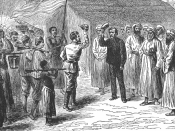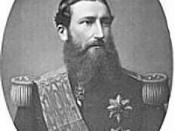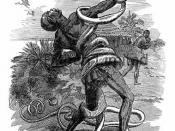Following the lead of David Livingstone, journalist Henry Morton Stanley conducted the first successful exploration of the Congo between 1874 and 1877 (Reader, 534). When he returned to Europe, Stanley petitioned the British government to colonize the region, but he was refused. However, King Leopold II of Belgium was listening and hired Stanley in 1878 to return to the Congo and thus set in motion the great scramble for Africa. This and other factors leading to the imperial conquest in Africa were played out through various roles that have left sustaining, long term effects.
The factor of exploration in Africa opened up many parts of the continent's interior. Before the age of European imperialism in Africa, the core of the continent was unknown to European civilization. These numerous expeditions of many explorers made the rapid colonization of Africa possible by showing the European nations what Africa held for them.
They saw that Africa itself was a factor for colonization as one of the most stable land masses (573).
It was a land of ethnographic and topographic durability that made it prime harvesting ground for raw materials like ivory, silk, cotton, palm oil, coffee, and rubber.
This cultivation and colonization would not have been possible without the aid of rapidly advancing technology. In the field of medicine it took the form a vaccine against malaria, quinine, which enabled conquest by reducing European deaths by eighty percent (585). Thanks to the Industrial Revolution that hit Europe by 1850, communication had enabled Leopold to reign 'sovereign' over the Congo without ever leaving Belgium. Transportation by means of the railroad system in the Congo was essential to its productivity, though at great cost of human lives (543).
The technology of European weapons also factored in to the ease at which any resistance was met.


